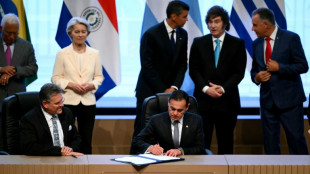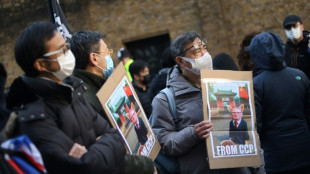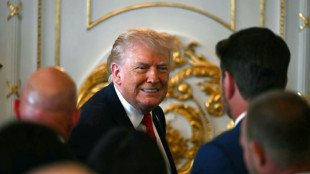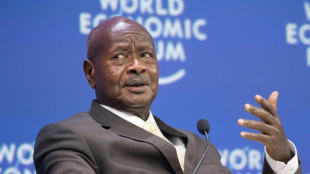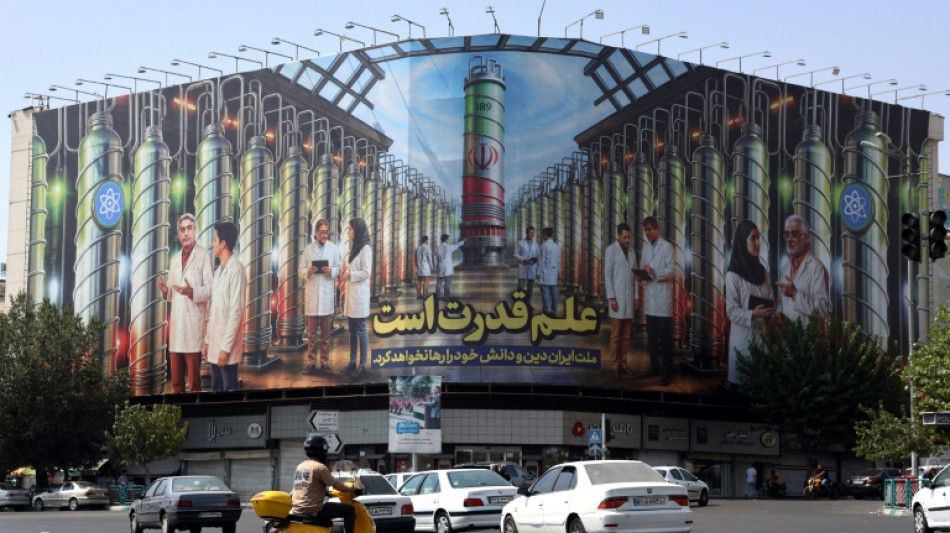
Iran sanctions look set to return after last-ditch UN vote

Sweeping UN sanctions look likely to return on Iran despite a last-ditch effort on Friday by China and Russia for a delay to allow further talks, diplomats say.
European powers were urging Iran to reverse a series of steps it took after Israel and the United States bombed its nuclear sites in June.
Complaining that Iran has not complied with a landmark but moribund deal, the Europeans have triggered a return of sweeping UN sanctions -- notably on its banking and oil sectors -- that are set to take effect at the end of Saturday.
China and Russia at a Security Council session on Friday put forward a draft resolution, seen by AFP, that would give another half year for talks, or until April 18, 2026.
But diplomats said they did not expect it to receive the nine votes on the 15-member Security Council for passage.
French President Emmanuel Macron met Iranian President Masoud Pezeshkian on Wednesday and said a deal was possible to avoid the sanctions but that Iran had only hours left.
One diplomat, speaking to AFP on condition of anonymity, said late Thursday that the Europeans believed they had "done everything to try to move things" but that Iran did not offer the desired flexibility.
France -- speaking for itself, Germany and Britain -- has told Iran it must allow full access to UN nuclear inspectors, immediately resume nuclear negotiations and offer transparency on highly enriched uranium, the whereabouts of which has been the subject of speculation.
- 'Illegal and irresponsible' -
The 2015 deal, negotiated during Barack Obama's presidency, lifted sanctions in return for Iran drastically scaling back its controversial nuclear work.
President Donald Trump in his first term withdrew from the deal and imposed sweeping unilateral US sanctions, while pushing the Europeans to do likewise.
The Chinese and Russian draft resolution, in a reference to the United States, would call on all initial parties to the deal to "immediately resume negotiations."
On Thursday, Iranian Foreign Minister Abbas Araghchi met his British counterpart, Yvette Cooper, to discuss the row.
Araghchi "strongly criticized the position of the three European countries as unjustified, illegal and irresponsible," the Iranian foreign ministry said.
Steve Witkoff, Trump's real estate friend and roving envoy who had been negotiating with Iran until Israel attacked, said Wednesday that Iran was in a "tough position" but also held out hope for a solution.
"I think that we have no desire to hurt them. We have a desire, however, to either realize a permanent solution and negotiate around snapbacks," Witkoff told the Concordia summit on the sidelines of the General Assembly.
"If we can't, then snapbacks will be what they are. They're the right medicine," Witkoff said.
Iran has long contended that it is not seeking nuclear weapons, pointing to an edict by Supreme Leader Ayatollah Ali Khamenei, and US intelligence has not concluded that the country has decided to build a nuclear weapon.
But Israel, the United States and European countries have long been skeptical due to the country's advanced nuclear work, believing it could quickly pursue a bomb if it so decided.
Standing at the General Assembly rostrum this week, Pezeshkian showed pictures of people killed in the 12-day Israeli military campaign against Iran in June, which Tehran says killed more than 1,000 people.
The United States joined in the campaign on June 22, striking several of Iran's nuclear facilities.
dt-abd-gw-sct/bjt/hol
D.Brown--SFF

 London
London

 Manchester
Manchester
 Glasgow
Glasgow
 Dublin
Dublin
 Belfast
Belfast
 Washington
Washington
 Denver
Denver
 Atlanta
Atlanta
 Dallas
Dallas
 Houston Texas
Houston Texas
 New Orleans
New Orleans
 El Paso
El Paso
 Phoenix
Phoenix
 Los Angeles
Los Angeles
